Teachings about marriage from the biblical stories of creation
|
How Abraham demonstrated his faith in God in the incident when he was willing to sacrifice his son [Genesis 22:1-19]
- Abraham collected wood for a burnt offering.
- Abraham went with his son, Isaac and servants a three days’ journey.
- He informed his servants to wait for him and his son as they go and worship.
- When Isaac enquired about the lamb for the sacrifice, Abraham told him that the lord shall provide.
- Abraham built an altar and laid the wood in order.
- Abraham bound Isaac and laid him on the altar.
- He took the knife to slay his son, but the angel of the Lord stopped him.
- Abraham took a ram from the bush and offered burnt offering instead of Isaac.
- He named the place “The Lord will provide”.
Lessons Christians learn from the incident Abraham was willing to sacrifice his son
- They should obey/honour God.
- They should have faith in God.
- They should be patient and wait upon God/should not give up.
- They should be prepared to face difficult situations/perseverance.
- They should be ready to give up everything.
- They should rely on God’s guidance.
- They should be wise when dealing with issues affecting their lives.
- They should involve family members in worship.
- They should rely on God’s providence.
Categories
All
ABRAHAM
Baptism
Burial Rules
Ceremonies
Christian Approaches To Human Sexuality Marriage
Christian Approaches To Law Order Justice
CHRISTIAN APPROACHES TO LEISURE
Christian Approaches To Selected Issues Related To Modern Science
Christian Approaches To Wealth
Christian Approaches To Work
Christian Lives Today
Christians Approaches To Wealth
Christian Teaching On Leisure
Christian Teaching On Work
Church Leaders
COVENANTS
CREATION AND THE FALL OF MAN
C.R.E FORM 2 NOTES
CRE NOTES FORM 2
CRE PAPER 1
C.R.E QUESTIONS ON ENVIRONMENT
C.R.E REVIEW QUESTIONS
CRE REVIEW QUESTIONS 1
CRE REVIEW QUESTIONS 1 - Page 2
CRE REVIEW QUESTIONS 1 - Page 3
CRE REVIEW QUESTIONS 1 - Page 4
CRE REVIEW QUESTIONS 1 - Page 5
Death
DEATH AND RESURRECTION
Disciples
Exodus
Faith And God’s Promises: Abraham
FORM 1
Form 2
FORM 3
FORM 4
Fornication
Gifts Of The Holy Spirit
GOD’S PLAN OF SALVATION OF MANKIND
Idolatry
Initiation
Israelites
Jeremiah
Jesus
Jesus Christ
JESUS’ PASSION
John The Baptist
KCSE 2012
King David
KING SAUL
King Solomon
LEADERSHIP IN ISRAEL: DAVID AND SOLOMON
Lessons Christians Learn
Love
LOYALTY TO GOD: ELIJAH
LOYALTY TO GOD – PROPHET ELIJAH
Luke 5:1-11
MARRIAGE
Marriage And Family
MEANING OF CHRISTIAN RELIGIOUS EDUCATION
Nature Of God
Nehemiah
Old Testament Prophesies About The Messiah
Order And Justice
Parables
Pentecost
Prophecies About The Messiah
Prophet Amos
Prophet Nathan
Qualities Of Prophet Elijah That A Christian Leader Should Posses
Reasons As To Why Man Is Considered The Most Special Creation Of God
RESPONSIBILITY OF THE LIVING TOWARDS GOD
RITES OF PASSAGE
Selected Aspects In African Religious Heritage: African Concept Of God
Selected Old Testament Prophets And Their Teachings
Similarities Between The Traditional African Myths And The Biblical Accounts Of Creation
SIN
SINAI COVENANT: MOSES
Spirits
Spirits And Ancestors
Steps In The Formation/ Sealing Of The Covenant
Summary Of The Ways In Which God Took Care Of The Israelites During The Exodus
Teachings From The Biblical Creation Accounts
Technology And Environment
Temple
Temptations
TEN PLAGUES
THE BIBLE
The Call Of Abraham (Gen. 12:1-9)
The Galilean Ministry
The Infancy And Early Life Of Jesus
THE JERUSALEM MINISTRY
The Journey To Jerusalem
THE KINGDOM OF GOD
THE PASSOVER
THE TEN COMMANDMENTS
THE UNITY OF BELIEVERS
Thics
Traditional African Society
Ural-values
Ural-values
Wealth And Poverty
Wilderness
Questions to expect in examinations
-
Explain the importance of the covenant between God and Abraham. (6 marks)
- God bound Himself in a personal relationship with Abraham
- It showed that Abraham had faith/trust in God
- It demonstrated Abraham’s obedience to God
- Abraham and his descendants were assured of God’s protection
- The descendants of Abraham were promised the land of Canaan
- It confirmed Abraham as God’s choice through whom all nations shall receive salvation
- God continued with his plan of salvation for human kind through the covenant.
-
State the promises God made to Abraham during his call. (6mks)
- God would make Abraham a great Nation.
- God would bless Abraham.
- God would make Abraham’s name great / famous.
- God would make Abraham a source of blessings to others.
- God would bless those who bless Abraham.
- God would curse those who cursed Abraham.
- God would give Abraham the land of Canaan.
-
Give the incidences when Abraham demonstrated his faith in God. (7 mks)
- Abraham positively responded to God’s call to go to unknown land.
- He built altars at Shechem and Bethel.
- He offered sacrifices to God in Canaan.
- He accepted the change of his name and of his wife’s.
- He entered into a covenant relationship with God.
- He accepted circumcision as a sign of the covenant with God for himself and his descendants.
- He was ready to offer his only son, Isaac as a sacrifice.
- He abandoned the worship of many gods and went for one true God.
-
Explain the importance of the promises given to Abraham to Christians today. (7 mks)
- Christians will inherit the kingdom of God which is equivalent to the promised land of Canaan.
- They should seek blessings from God.
- They are under God’s protection in all their activities.
- Christians who disobey God are punished by Him.
- If Christians obey God, they receive His rewards.
- They should trust in God’s providence.
- They should accept suffering because they will be liberated by God.
- By accepting Christ they have an everlasting covenant with God.
-
Describe how God tested Abraham’s faith in Genesis 22:1-19 (8mks).
- God called Abraham and Abraham said here I am
- He asked him to take his son Isaac to the land of Moriah and offer him as a sacrifice upon one of the mountains he would tell him
- Abraham rose early in the morning, saddled his ass and took two of his servants and his son Isaac
- He cut wood for the burnt offering and went to the place God had told him
- On the third day, he lifted his eyes and saw the place afar off
- He told the young men to stay while he would go up with his son to worship and come back
- He laid the wood on Isaac and took in his hand the fire and the knife
- Isaac enquired where the lamb for burnt offering was
- Abraham replied that God would provide the lamb
- When they reached the place God had told him about, Abraham built an altar there and arranged the wood on it
- He bound his son Isaac and laid him on the altar, on top of the wood
- Then he reached out his hand and took the knife to slay his son
- But the angel of God called him from heaven by name
- He told him not to do anything to the son for it had been confirmed that he feared God
-
With reference to Genesis 17:10-17, outline five instructions given by God to Abraham concerning Jewish circumcision (5 mks).
- Every male among his descendants had to be circumcised
- They would be circumcised by cutting the flesh of the foreskin
- Circumcision would take place when a boy was 8 days old
- All the male servants of Abraham had to be circumcised
- It would be a symbol of an everlasting covenant between God and Abraham’s descendants
- Any male who was not circumcised would be cut off from Abraham’s descendants
-
Describe the making of the covenant between God and Abraham (8x1 = 8 mks)
- God asked Abraham to bring the best of his animals.
- Abraham brought a heifer, a she goat, a ram, a turtle dove and a young pigeon.
- He then cut the animals into halves and placed them apposite each other in two rows.
- The birds were not split.
- Birds of prey came on the carcasses but Abraham drove them away.
- Towards evening, Abraham fell into a deep sleep.
- While he slept the Lord appeared to him in a vision and gave him other promises.
- After the sun set and it was dark, God in form of a smoking fire pot and a flaming torch passed between the pieces of animals.
- The Lord made a covenant with Abraham and promised to give him and his descendants the land of Canaan.
-
Outline the background of Abraham before his call. (6 marks)
- He lived in ur of chaldeans
- He was son of Terah
- He moved from ur to Haran with his family
- He and his wife were childless.
- He and his family worshipped idols
- His name was Abram and his wife Sarai
- God called him when he was 75 years old.
- He had two brothers – Haran & Nahar.
-
Describe the call of Abraham (Genesis 12:1-9). (7 marks)
- God called Abraham in Haran after the death of his father.
- Abraham was 75 years old when God commanded him to leave with his family.
- To leave Haran and go to unknown land.
- God made promises to Abraham of a great nation,/many blessing,/a great name/a source of blessings to many/curses to those who curse him.
- Abraham obeyed and set off for the unknown land, with his wife, nephew lot, servants and livestock.
- In Canaan God appeared to him in Bethel and Schechem.
- Here, he was shown the land that would belong to his descendants.
- Abraham built altars at Bethel and Schechem and worshipped God.
- God appeared to Abraham in the land/promised to give the land of Canaan to his descendants.
- He moved to the mountain to the east of Bethel/pitched his tent/built an altar for the lord/called the name of the lord.
-
Give seven reasons why Abraham is referred to as the Father of faith
- He left his land and wealth to go to a foreign land.
- He was ready to sacrifice his son Isaac.
- He undertook a long and dangerous journey to an unknown land.
- He trusted God’s promise of a son despite his wife’s age.
- He built an alter for God at Bethel and Shechem.
- He accepted to make a covenant with God by offering him sacrifices of animals and birds.
- He accepted God’s command of circumcision at old age.
- He abandoned the worship of idols and worshipped Yahweh as the true God
recommended videos for you ...
Why the Exodus is important to the Israelite
- It marked the end of their suffering/ oppression in Egypt.
- It signified they were a special nation chosen by God.
- It was a fulfillment of the promises God had made to Abraham.
- It proved that God was more powerful than other gods/ supreme.
- It showed/ proved to them that Moses was a chosen leader of Israel as a nation.
- It made them understand the nature of God.
- It taught them that God needed obedience from human beings.
- They received the Ten Commandments which guided them in their relationship.
THE TEN COMMANDMENTS (EXODUS 20:1 – 17)
The Ten Commandments were divided into two major parts.
- Duties towards God (Ex 20:3 -11) – the 1st 4 commandments about the relationship between God and man.
- Duties towards man (Ex 20:12 – 17) – the last 6 commandments about the relationship between man and fellow man.
Duties to God
1. “You shall have no other gods before me”.
- It means that God is only one.
- There was need to remind the Israelites that he was the God who brought them out of Egypt and cared for them in the wilderness.
- The Israelites were to worship him alone.
- Any attempts to consider anything else God is wrong.
- We have one God who is the creator and sustainer of all things
- Anything we cherish more than God has become a god.
- It prohibits against Polytheism i.e. “The Lord is one” Deuteronomy 6:4
2. “You shall not make yourself a graven image”
- This is prohibition against idolatry because God is invisible. (Ex 19:19, Deut 4:12 – 16)
- Any representation of God is wrong because it might tempt us to worship it which is disrespect to God.
- Yahweh was not like the Egyptians or Canaanite gods which were depicted in images.
3. “You shall not take the name of the Lord your God in Vain”
- It prohibits against taking the name of the Lord in vain/ swearing.
- This commandment forbids the use of God’s name in a careless manner without regard to his holiness.
- One should not swear in God’s name.
- In Mathew 5:33 – 37 Jesus stresses that Christians should be honest, sincere and always speak the truth.
- We need then to respect God’s name and the greatness of his name.
4. “Remember the Sabbath day to keep it holy”
The Sabbath Day was instituted by God at creation God rested on this day after creation thus we should not work or involve ourselves in any work.
- It is time to rest/ relax and reflect on what God has done.
- People are expected to honour it by worshipping God.
- Reminder of God’s sacrifice.
- They remembered the day God rested after his creation.
- Day for worship/ thanksgiving/ prayer.
- It is in obedience to one of the commandments.
- Day for rest/ leisure.
- Holy day dedicated to God.
- Shows that man has his origin in God and is therefore responsible to God.
Duties towards man
5. “Honour your father and mother that your days may be long”
God’s gift of life is passed on through our parents as they take care and bring up children. God takes care of us through our parents.
- Dishonor to parents leads to disgrace.
- The family is the foundation of the society.
- Good respect to our parents leads to right conduct.
- Obedience to parents leads to long life and prosperity in the land.
- Parents deserve honour; respect and children should help their parents.
6. “You shall not kill”
It is God alone who gives life and it should be Him alone to take it. The life of a person is sacred. Christians are called upon to preserve, respect and protect life.
7. “You shall not commit adultery”.
- It is wrong to have sexual intercourse with somebody else’s wife or husband. Such an act sows discord in the community.
- This command safeguards marriage and family.
- Purity is demanded of Christians both in their outward life, thoughts and desires.
8. “You shall not steal”
- Affirms that God is the one who provides us with all that is required to maintain life.
- Stealing indicates lack of trust in God’ providence.
- This command prohibits theft.
- It is protection against property.
9. “You shall not bear false witness against your neighbor”
- False accusations destroy respect and love among God’s people.
- Christians should show love, honesty, faithfulness and truthfulness.
- The need for justice in courts.
10. “You shall not covet your neighbor’s property”.
- Prohibition against covetousness. Desire for that which belongs to another Num 11:11.
- This commandment condemns greed of any nature.
- Greed is motivated by selfishness and hence leads to sin.
list-the-qualities-of-moses-shown-during-his-call-at-mount-sinai.html
On Sale
On Sale
JUNIOR SECONDARY EXAMS WITH ANSWERS: AGRICULTURE AND NUTRITION GRADE 7 MID OF TERM ONE 2024
On Sale
On Sale
History Notes Form 1, Form 2, Form 3 and Form 4 in Slideshow ('Powerpoint', '.pptx')
THE WORSHIP OF THE ISRAELITES IN THE WILDERNESS
(EX 20:22 – 26, 23:14 – 20)
- Worship refers to reverence paid to God/ respect given to God in recognition of Him as the creator and controller of the universe and the strong feeling of love for God.
- The Israelites must have known God well e.g. they knew him as provider, protector, God of justice, the mighty and all powerful God.
- All these qualities of God must have made them respect him and love him deeply.
- During their period in the wilderness, the Israelites worshipped God as individual and as a community. This occurred at specific places.
- All worship involved:
A. Sacrifices and offerings
- Animals were used in sacrifices.
- In an offering agricultural produce was used.
1. burnt offerings/holocaust
- The sacrificial animal was completely burnt i.e. entirely removed from human possession and given to God.
- It could be given by an individual or by the community.
2. Atonement/ sin offering
- Offered when one had sinned either against God or against his fellow man and wanted his sins to be forgiven.
- The one who had sinned brought an animal before God and it was offered as a sacrifice.
- The animal died on behalf of the person who sinned.
3. Peace offering/ communion sacrifice/ fellowship offering
- Part of the meat of the sacrificial animal was eaten by the people and other parts which consisted of fat and blood was burnt on the altar for God.
4. Gift offering
- The best animal or grain that God had blessed the concerned party was chosen and offered to God as a thanksgiving.
5. Meal offering/ drink offering
- It involved both vegetable and animal offerings.
- Meat offering could be offered together with fresh agricultural produce.
6. Incense offering
- Incense is a substance composed of sweet smelling herbs.
- It was burnt before God and it was a sign of God’s holiness and his acceptance of the sacrifices.
B. Festivals
There were a number of festivals in the Israelite community. These included:
1. The Passover/Feast of unleavened bread
The Passover feast reminded the Israelites that they were free, redeemed people while the Lords Suppers is to remind Christians of their forgiveness of sins. The death of Jesus set Christians free from sins.
2. The feast of weeks/ Pentecost.
Later it was conducted 50 days from the Sabbath following the Passover hence name Pentecost.
3. The Feast of Tabernacles.
It took place in autumn when the fruits had been safely gathered/ harvested.
C. Altars
- The Israelites built an altar in places where they received a Theophany/ God revelation.
- e.g. Abraham built two altars, one at Shechem and another one at Bethel when God revealed to him that he would give him the land of Canaan
- The practice of building altars continued to the time the Israelites settled in Canaan Ex 20:24 – 25.
D. Prayer and Songs
E. Holy day of worship
F. The Tent of Meeting (EXODUS 26)
- It was a portable structure in which the Israelites worshipped God.
- The outer court contained the altar for incense, the golden stick and the bread of the presence table.
- The inner court was known as the most Holy place because it contained the Ark of the Covenant.
- - The Ark of the Covenant was covered with pure gold and the inside contained the two stone tablets in which the Ten Commandments were written.
- It was taken care of by the Levites and the priest from the time of Moses.
- The Terbanacle symbolized the presence of God among his people.
- Priests would go inside the Terbanacle to offer prayers and sacrifices to God on behalf of the people.
REASONS AGAINST KINGSHIP IN ISRAEL AND REASONS WHY SAMUEL WAS AGAINST KINGSHIP IN ISRAEL
THE RENEWAL OF THE SINAI COVENANT - EXODUS 34:1 -35
Moses Makes New Tablets
- 34 The Lord said to Moses, “Cut two tablets of stone like the former ones, and I will write on the tablets the words that were on the former tablets, which you broke.
- Be ready in the morning, and come up in the morning to Mount Sinai and present yourself there to me, on the top of the mountain.
- No one shall come up with you, and do not let anyone be seen throughout all the mountain; and do not let flocks or herds graze in front of that mountain.”
- So Moses cut two tablets of stone like the former ones; and he rose early in the morning and went up on Mount Sinai, as the Lord had commanded him, and took in his hand the two tablets of stone.
- The Lord descended in the cloud and stood with him there, and proclaimed the name, “The Lord.”
- The Lord passed before him, and proclaimed,
“The Lord, the Lord,
a God merciful and gracious,
slow to anger,
and abounding in steadfast love and faithfulness, - keeping steadfast love for the thousandth generation,
forgiving iniquity and transgression and sin,
yet by no means clearing the guilty,
but visiting the iniquity of the parents
upon the children
and the children’s children,
to the third and the fourth generation.” - And Moses quickly bowed his head toward the earth, and worshiped.
- He said, “If now I have found favor in your sight, O Lord, I pray, let the Lord go with us. Although this is a stiff-necked people, pardon our iniquity and our sin, and take us for your inheritance.”
The Covenant Renewed - He said: I hereby make a covenant. Before all your people I will perform marvels, such as have not been performed in all the earth or in any nation; and all the people among whom you live shall see the work of the Lord; for it is an awesome thing that I will do with you.
- Observe what I command you today. See, I will drive out before you the Amorites, the Canaanites, the Hittites, the Perizzites, the Hivites, and the Jebusites.
- Take care not to make a covenant with the inhabitants of the land to which you are going, or it will become a snare among you.
- You shall tear down their altars, break their pillars, and cut down their sacred poles
- (for you shall worship no other god, because the Lord, whose name is Jealous, is a jealous God).
- You shall not make a covenant with the inhabitants of the land, for when they prostitute themselves to their gods and sacrifice to their gods, someone among them will invite you, and you will eat of the sacrifice.
- And you will take wives from among their daughters for your sons, and their daughters who prostitute themselves to their gods will make your sons also prostitute themselves to their gods.
- You shall not make cast idols.
- You shall keep the festival of unleavened bread. Seven days you shall eat unleavened bread, as I commanded you, at the time appointed in the month of Abib; for in the month of Abib you came out from Egypt.
- All that first opens the womb is mine, all your male livestock, the firstborn of cow and sheep.
- The firstborn of a donkey you shall redeem with a lamb, or if you will not redeem it you shall break its neck. All the firstborn of your sons you shall redeem.
No one shall appear before me empty-handed. - Six days you shall work, but on the seventh day you shall rest; even in plowing time and in harvest time you shall rest.
- You shall observe the festival of weeks, the first fruits of wheat harvest, and the festival of in-gathering at the turn of the year.
- Three times in the year all your males shall appear before the Lord God, the God of Israel.
- For I will cast out nations before you, and enlarge your borders; no one shall covet your land when you go up to appear before the Lord your God three times in the year.
- You shall not offer the blood of my sacrifice with leaven, and the sacrifice of the festival of the Passover shall not be left until the morning.
- The best of the first fruits of your ground you shall bring to the house of the Lord your God.
You shall not boil a kid in its mother’s milk. - The Lord said to Moses: Write these words; in accordance with these words I have made a covenant with you and with Israel.
- He was there with the Lord forty days and forty nights; he neither ate bread nor drank water. And he wrote on the tablets the words of the covenant, the ten commandments.
The Shining Face of Moses - Moses came down from Mount Sinai. As he came down from the mountain with the two tablets of the covenant in his hand, Moses did not know that the skin of his face shone because he had been talking with God.
- When Aaron and all the Israelites saw Moses, the skin of his face was shining, and they were afraid to come near him.
- But Moses called to them; and Aaron and all the leaders of the congregation returned to him, and Moses spoke with them.
- Afterward all the Israelites came near, and he gave them in commandment all that the Lord had spoken with him on Mount Sinai.
- When Moses had finished speaking with them, he put a veil on his face;
- but whenever Moses went in before the Lord to speak with him, he would take the veil off, until he came out; and when he came out, and told the Israelites what he had been commanded,
- the Israelites would see the face of Moses, that the skin of his face was shining; and Moses would put the veil on his face again, until he went in to speak with him.
- God forgave the people and Moses.
- The Ten Commandments were re-written on two stone tablets that God had asked Moses to cut.
- Moses went up the mountain with the two stone tablets alone and no man or animal was allowed to be seen around the mountain.
- God declared that he could make a covenant with the Israelites.
- He gave Moses the Ten Commandments the second time.
God revealed his nature to Moses as:
- Merciful/compassionate God.
- Gracious God.
- Slow anger
- Abounding in love
- Faithful to his promise
- Forgiving wickedness, Rebellion and sin.
- Just and jealous/punishes sin
- He promised to take the Israelites to the Promised Land and protect them against the Canaanites
The Israelites were given conditions to fulfill after the renewal these are:
- Obey what God commands them.
- Not to worship any other gods.
- Not to make any cast idols.
- To keep the Feast of Unleavened Bread.
- To rest on the seventh day.
- To dedicate all their first born children and that of the flock to God.
- To offer to God the first fruit of their harvest.
- Not to enter into any covenant relationship with the inhabitant of Canaan e.g. not to intermarry with foreigners.
- To destroy the worshipping place of idols.
- Not to make molten gods to worship.
- Three times in a year the male folk were to appear before God.
- Not to offer the blood of His sacrifice with leaven.
- Not to boil a kid in his mother’s milk.
Giving of more promises by God
- God would bless them and make them more prosperous.
- God would preserve them as a chosen nation.
- God would do great and awesome things among his people.
- God would help them settle the Promised Land by driving out the inhabitants/their enemies e.g. Canaanite, perizites etc.
Reasons why Moses was reluctant to accept God’s call
- He was a murderer.
- He was a fugitive / a run away.
- He was a stammerer.
- He was not sure of God/ God’ name.
- The people would doubt him.
- He knew Pharaoh would refuse to let the people go.
- He felt he was worth the task.
CRE NOTES AND SYLLABUS
How Christians show respect to God
- They set aside a day of worship.
- Set aside holy places of worship.
- They do not mention God’s name in vain.
- They pray to him asking for forgiveness/ confessing to Him.
- Live exemplary lives/ role models.
- Giving offering/ tithes.
- Praise Him for His wonders.
- Taking care of the environment.
- Looking after the needy.
- Preaching/ spreading His word.
CRE NOTES AND SYLLABUS
(Exodus 24:1 – 8)
- Moses told the people the 10 commandments. They all agreed to obey.
- Moses wrote down God’s laws and commands.
- The next day/morning Moses built an altar and put twelve stores/pillars around it; the 12 stones symbolizes the twelve tribes of Israel.
- Young men sacrificed bulls/ oxen to offer burnt offerings and peace offerings.
- Moses collected the blood into two basins.
- He poured half of the blood into the altar. This was a sign that God was involved in the covenant formation.
- He read the Ten Commandments book of the covenant to the people to make sure that they understood. The people agreed to obey.
- He sprinkled/threw the remaining blood upon the people. This showed people’s involvement in the covenant formula.
- The use of the blood showed the seriousness of the covenant. Whoever broke this covenant meant loss of his life.
- The use of live animals showed that God is the life giver.
CRE NOTES AND SYLLABUS
significance of the call of moses
- God is a God of History i.e. He is a God of Abraham, Isaac and Jacob.
- God is loving and caring and is concerned with the welfare of his people.
- God is transcendent i.e. He is beyond human understanding and description.
- God chooses whoever he wills to carry out his plans e.g. He chose Moses, a murderer, fugitive stammerer.
- God expects total faith and obedience from the people he chooses to serve him.
- God fulfills his promises i.e. he was ready to deliver the Israelites from bondage/ slavery he had promised Abraham.
list-the-qualities-of-moses-shown-during-his-call-at-mount-sinai.html
Introduction TO TEN PLAGUES EXODUS 7-11
- When Moses reached Egypt, he gathered all the Israelite elders then told them what God had sent him to do.
- He performed all the miracles God had shown him and the Israelite elders believed in his mission.
- When Pharaoh was approached to let the Israelites go, he became stubborn and increased the workload for the Israelites
- Moses had to perform plagues on Egypt. (A plague may be a disease or an unfortunate occurrence in one’s life) (Exodus 7:4 – 5)
- The signs and the wonders of the plagues were to make the Israelite and Egyptians know that only Yahweh was worthy of the title God.
1. The plague of blood (Exodus 7:14 – 25)
- Moses was commanded by God to tell Aaron to strike the waters of the Nile.
- He did this in the presence of Pharaoh and the waters of the Nile turned into blood.
- All the fish died and there was no water to drink. This lasted seven days.
- He did not release the Israelites.
2. Plague of frogs (Exodus 8:1 – 15)
- The Lord commanded Moses to tell Aaron to stretch his hand over the streams, canals and ponds.
- Aaron did as was commanded and there were frogs all over the land of Egypt.
- On seeing this, Pharaoh pleaded with Moses and Aaron to pray to the Lord to get rid of the frogs and he would release them.
- They prayed and all the frogs died when Pharaoh saw that the frogs were dead, he changed his mind.
3. Plague of gnats (Exodus 8:16 – 19)
- Gnats are small two-winged biting flies.
- The Lord instructed Moses to tell Aaron to strike the ground.
- Aaron did and all the dust in Egypt turned into gnats.
- The gnats covered the entire land.
- Even the magicians accepted it as God’s work, but Pharaoh still refused to let the Israelites go.
4. Plague of flies (Exodus 8:20 – 32)
- The Lord warned Pharaoh through Moses that he would send swarms of flies to the Egyptian houses. But the Israelites houses would be spared.
- When this happened, Pharaoh sent for Moses and Aaron and promised to let them to go and worship so that the flies would go away.
- Moses prayed and the flies went away. However, Pharaoh changed his mind and again refused to let the Israelites go.
5. Death of livestock (Exodus 9:1 – 7)
- God sent a plague that killed all the Egyptian animals. Their cows, donkeys, camels, sheep, goats and horses were all killed.
- The Israelites were not affected. Still Pharaoh refused to release them.
6. Plague of boils (Exodus 9:8 – 12)
- Moses threw ashes into air as God had instructed.
- This produced boils which became open sores on the skin of the Egyptians.
- Unmoved by the suffering of his people, Pharaoh would still not let the Israelites go.
7. Plague of hail (Exodus 9:13 – 35)
- Moses raised his stick and there was a hailstorm with lightning and thunder. The people, animals and plants that were struck were killed and destroyed.
- Pharaoh promised to let the Israelites go but as soon as Moses had prayed and all the hail and thunder stopped. Pharaoh changed his mind yet again. He did not let the Israelites go.
8. Plague of Locusts (Exodus 10:1 – 20)
- Locusts covered the whole land and ate all the crops in the fields.
- The locusts ate all that had not been destroyed by the hail.
- Pharaoh once more pleaded for the plague to be lifted.
- As soon as locusts were out of Egypt, Pharaoh changed his mind. He still would not let the Israelites out of Egypt.
9. Plague of darkness (Exodus 10:21 – 29)
- God instructed Moses to stretch out his hand to heaven.
- There was total darkness in Egypt for 3 days. The Israelites had light where they were living.
- Pharaoh remained unmoved and would still not let the Israelites go out of Egypt.
10. Death of first-born sons (Exodus 12:1 – 31)
- The last plague is the death of the Egyptians male first born.
- The Lord would kill all the first born sons and first male animals of the Egyptians at midnight.
- The Israelite males would be spared.
Attributes of God learnt during the call of Moses
- God is Holy/ pure. He told Moses to remove his shoes for he was standing on a Holy place.
- God ears the cries of his people/answers prayers Vs.7.
- Just/God punishes the wrong doers.
- Deliverer.Vs.8.
- God of History, vs. 15 and Vs. 6
- Caring/loving/ merciful/ compassionate.Vs.7.
- Faithful/ fulfills promises e.g. fulfilled the promise made to Abraham.
- Demands faith and obedience from those he calls/sends.
- Transcendent/mysterious/beyond human understanding e.g. burning bush.
- Personal/knows us by name e.g. called Moses by his name.vs.4.
- Uses human beings to accomplish a task e.g. Moses/God commissions people to perform certain tasks/ works through people He chooses.
- Empowers those He sends/doesn’t give people impossible tasks e.g. enabled Moses to perform miracles e.g. changing stick into snake.
- Awesome/demands respect vs.5/ worthy of respect.
- Knows our suffering vs.7. He had seen the affliction of His people in Egypt.
- Has power over nature/all powerful vs.2 e.g. bush burning though not getting consumed/ almighty/ omnipotent.
- Eternal. vs. 14 I AM WHO I AM.
- All-knowing i.e. knows us by name, our sufferings e.t.c.
- Protects his people vs. 12 e.g. promised to protect Moses.
- God is omnipresent.
- Uses events to reveal Himself to people e.g. burning bush.
- God is miracle working God.
What are the attributes of God to Moses
Attributes of God learnt from the ten plagues
1. God is almighty/all powerful/ omnipotent and no other forces or power can challenge him. The magicians could not match his powers and accepted that God’s powers are great (Exodus 8:18 – 19).
19 The Lord said to Moses, “Tell Aaron, ‘Take your staff and stretch out your hand over the waters of Egypt—over the streams and canals, over the ponds and all the reservoirs—and they will turn to blood.’ Blood will be everywhere in Egypt, even in vessels[a] of wood and stone.”
20 Moses and Aaron did just as the Lord had commanded. He raised his staff in the presence of Pharaoh and his officials and struck the water of the Nile, and all the water was changed into blood.
21 The fish in the Nile died, and the river smelled so bad that the Egyptians could not drink its water. Blood was everywhere in Egypt.
18 But when the magicians tried to produce gnats by their secret arts, they could not.
Since the gnats were on people and animals everywhere,
19 the magicians said to Pharaoh, “This is the finger of God.” But Pharaoh’s heart was hard and he would not listen, just as the Lord had said.
2. God empowers the people he sends to perform miracles and do his work. He gave Moses the rod with which to work and cause the plagues.
20 Moses and Aaron did just as the Lord had commanded. He raised his staff in the presence of Pharaoh and his officials and struck the water of the Nile, and all the water was changed into blood.
21 The fish in the Nile died, and the river smelled so bad that the Egyptians could not drink its water. Blood was everywhere in Egypt.
3. God is determined to fulfill his plans/to save his people no matter how hard the task may appear to the human eye. He does not give up on his people. Exodus 8:22, 9:6, 10:23.
22 “‘But on that day I will deal differently with the land of Goshen, where my people live; no swarms of flies will be there, so that you will know that I, the Lord, am in this land.
Exodus 9:6 New International Version (NIV)
6 And the next day the Lord did it: All the livestock of the Egyptians died, but not one animal belonging to the Israelites died.
Exodus 10:23 New International Version (NIV)
23 No one could see anyone else or move about for three days. Yet all the Israelites had light in the places where they lived.
4. God gives everyone a chance to repent. He forgives the repentant. Each time Pharaoh promised to release the Israelites, God relieved the Egyptians from the plagues.
8 Pharaoh summoned Moses and Aaron and said, “Pray to the Lord to take the frogs away from me and my people, and I will let your people go to offer sacrifices to the Lord.” 9 Moses said to Pharaoh, “I leave to you the honor of setting the time for me to pray for you and your officials and your people that you and your houses may be rid of the frogs, except for those that remain in the Nile.” 10 “Tomorrow,” Pharaoh said.
Moses replied, “It will be as you say, so that you may know there is no one like the Lord our God.
11 The frogs will leave you and your houses, your officials and your people; they will remain only in the Nile.” 12 After Moses and Aaron left Pharaoh, Moses cried out to the Lord about the frogs he had brought on Pharaoh. 13 And the Lord did what Moses asked. The frogs died in the houses, in the courtyards and in the fields. 14 They were piled into heaps, and the land reeked of them. 15 But when Pharaoh saw that there was relief, he hardened his heart and would not listen to Moses and Aaron, just as the Lord had said.
5. God is God of justice/ he punishes the wrong doer and protects the oppressed. He afflicted the Egyptians who had enslaved his people. He spared the Israelites.
9 Then the Lord said to Moses, “Go to Pharaoh and say to him, ‘This is what the Lord, the God of the Hebrews, says: “Let my people go, so that they may worship me.” 2 If you refuse to let them go and continue to hold them back, 3 the hand of the Lord will bring a terrible plague on your livestock in the field—on your horses, donkeys and camels and on your cattle, sheep and goats. 4 But the Lord will make a distinction between the livestock of Israel and that of Egypt, so that no animal belonging to the Israelites will die.’”
5 The Lord set a time and said, “Tomorrow the Lord will do this in the land.” 6 And the next day the Lord did it: All the livestock of the Egyptians died, but not one animal belonging to the Israelites died.7 Pharaoh investigated and found that not even one of the animals of the Israelites had died. Yet his heart was unyielding and he would not let the people go.
6. God fulfill his promises/ He is faithful. The Israelites finally left Egypt as God had promised Exodus 3:7 – 10, Genesis 15:13 – 14, 26:3 – 4.
7 The Lord said, “I have indeed seen the misery of my people in Egypt. I have heard them crying out because of their slave drivers, and I am concerned about their suffering. 8 So I have come down to rescue them from the hand of the Egyptians and to bring them up out of that land into a good and spacious land, a land flowing with milk and honey—the home of the Canaanites, Hittites, Amorites, Perizzites, Hivites and Jebusites. 9 And now the cry of the Israelites has reached me, and I have seen the way the Egyptians are oppressing them. 10 So now, go. I am sending you to Pharaoh to bring my people the Israelites out of Egypt.”
7. God expects total obedience and faith from the people he sends.
7 Then the Lord said to Moses, “See, I have made you like God to Pharaoh, and your brother Aaron will be your prophet. 2 You are to say everything I command you, and your brother Aaron is to tell Pharaoh to let the Israelites go out of his country. 3 But I will harden Pharaoh’s heart, and though I multiply my signs and wonders in Egypt, 4 he will not listen to you. Then I will lay my hand on Egypt and with mighty acts of judgment I will bring out my divisions, my people the Israelites. 5 And the Egyptians will know that I am the Lord when I stretch out my handagainst Egypt and bring the Israelites out of it.”
6 Moses and Aaron did just as the Lord commanded them. 7 Moses was eighty years old and Aaron eighty-three when they spoke to Pharaoh.
8. God is a loving/ caring God. He sees the plight and suffering of his people and works to release them from their suffering.
20 Then the Lord said to Moses, “Get up early in the morning and confront Pharaoh as he goes to the river and say to him, ‘This is what the Lord says: Let my people go, so that they may worship me. 21 If you do not let my people go, I will send swarms of flies on you and your officials, on your people and into your houses. The houses of the Egyptians will be full of flies; even the ground will be covered with them.
9. More powerful that the Egyptian gods.
16 Then the Lord said to Moses, “Tell Aaron, ‘Stretch out your staff and strike the dust of the ground,’ and throughout the land of Egypt the dust will become gnats.” 17 They did this, and when Aaron stretched out his hand with the staff and struck the dust of the ground, gnats came on people and animals. All the dust throughout the land of Egypt became gnats. 18 But when the magicians tried to produce gnats by their secret arts, they could not.
Since the gnats were on people and animals everywhere, 19 the magicians said to Pharaoh, “This is the finger of God.” But Pharaoh’s heart was hard and he would not listen, just as the Lord had said.
10. God was aware of the problems of the Israelites.
9 Then the Lord said to Moses, “Go to Pharaoh and say to him, ‘This is what the Lord, the God of the Hebrews, says: “Let my people go, so that they may worship me.” 2 If you refuse to let them go and continue to hold them back, 3 the hand of the Lord will bring a terrible plague on your livestock in the field—on your horses, donkeys and camels and on your cattle, sheep and goats. 4 But the Lord will make a distinction between the livestock of Israel and that of Egypt, so that no animal belonging to the Israelites will die.’”
11. Determined to save his people.
7 The Lord said, “I have indeed seen the misery of my people in Egypt. I have heard them crying out because of their slave drivers, and I am concerned about their suffering. 8 So I have come down to rescue them from the hand of the Egyptians and to bring them up out of that land into a good and spacious land, a land flowing with milk and honey—the home of the Canaanites, Hittites, Amorites, Perizzites, Hivites and Jebusites.
12. God was working through Moses. This strengthened faith of the Israelites on Moses their liberator
21 Then the Lord said to Moses, “Stretch out your hand toward the sky so that darkness spreads over Egypt—darkness that can be felt.” 22 So Moses stretched out his hand toward the sky, and total darkness covered all Egypt for three days. 23 No one could see anyone else or move about for three days. Yet all the Israelites had light in the places where they lived.
24 Then Pharaoh summoned Moses and said, “Go, worship the Lord. Even your women and children may go with you; only leave your flocks and herds behind.”
25 But Moses said, “You must allow us to have sacrifices and burnt offerings to present to the Lord our God. 26 Our livestock too must go with us; not a hoof is to be left behind. We have to use some of them in worshiping the Lord our God, and until we get there we will not know what we are to use to worship the Lord.”
27 But the Lord hardened Pharaoh’s heart, and he was not willing to let them go. 28 Pharaoh said to Moses, “Get out of my sight! Make sure you do not appear before me again! The day you see my face you will die.”
29 “Just as you say,” Moses replied. “I will never appear before you again.”
Christian values learnt from the call of Moses
- Humility.
- Courage.
- Faith.
- Love/ mercy/ care.
- Honesty.
- Obedience.
- Reverence/ respect/ honour/ God-fearing.
- Service.
- Holiness.
- Inquisitiveness/ knowledge/ curiosity.
- Patience/ persistence.
- Justice.
list-the-qualities-of-moses-shown-during-his-call-at-mount-sinai.html
The teachings about human beings from the Biblical creation accounts
- Human beings are created in the image/ likeness of God.
- They have the breath of life from God.
- They have the authority/ dominion over God’s creation.
- They communicate/ fellowship with God.
- They are special/ the greatest of God’s creation.
- They have the ability to think/ reason/ make choices/ decisions in their lives.
- They are blessed by God.
- They have been given special place to stay/ Garden of Eden.
- Human beings are to use other creation/ plants for their benefits.
- They are to take care of the creation and till the land/ work.
- Human beings are to procreate/ multiply through marriage.
- Man and woman are to complement/ provide companionship for each other.
- Human beings are God’s creation i.e. both man and woman.
- The woman is created out of the man’s rib.
teachings-about-marriage-from-the-biblical-stories-of-creation.html
Importance of circumcision to Abraham and his descendants
- It was an outward sign of Abraham’s and his descendants’ covenant relationship with God.
- It was an outward sign of a male Jew’s true belonging to the Jewish community.
- It was an outward sign of the inner faith for Abraham and his descendants that they were called to a life of obedience to God.
- It identified the Israelites as God’s chosen race.
- Through it, Abraham and his descendants were assured of inheriting God’s blessings.
- It confirmed that Abraham was obedient and faithful to God.
- It was a sign of continued love and protection from God which the Israelites were to enjoy.
- It signified purity/ cleanliness.
Attributes of God shown in the Jewish Passover
- God is caring i.e. preserved the life of the Israelites.
- God loves.
- God is powerful i.e. took care of nature.
- God is provider of life i.e. killed the Egyptians.
- God is the creator and controller of human life.
- God is universal e.g. controlled lives of the Egyptians and Israelites.
- God is omnipresent i.e. everywhere including to the Israelite and the Egyptians.
- God is faithful to his promises.
- He punishes the disobedient.
David’s weaknesses
|
KING DAVID’S IMPORTANCE
He was the second King of Israel, was anointed by Samuel after Saul failed and regarded as the most successful King in Israel.
Importance:
Refers to his successes, achievement and qualities also King David’s achievements as the king of Israel
I Samuel 16:1 – 23, 2 Sam 6:1 – 19
- He was chosen by God to be the king of Israel/anointed by God’s prophet Samuel.
- David was filled with God’s spirit right from the time of anointing/throughout his reign.
- He had outstanding qualities of leadership e.g. he was charismatic, generous, patient, honorable, wise, brave, eloquent in speech, God-fearing.
- He knew and obeyed God/He was a man after God’s own heart/faithful/ trusted God throughout his life.
- David consulted prophets of God in all undertakings.
- David was acclaimed/accepted/chosen as King of Israel by the whole of Israel at Hebron, 2 Sam 5:1 – 5
- He courageously fought and defeated his enemies e.g. the Philistines.
- He captured the city of Jerusalem from the Jebusites/He made it the political administration capital for the nation and a religious centre.
- He chose Jerusalem a neutral city of his nation. 2 Sam 5:6 – 10, 6:1 – 19
- He recaptured the Ark of the Covenant.
- He united his people through personal efforts.
- He extended the boundaries of his kingdom by capturing smaller states.
- He established a standing army / he was a good military commander. He broke the Philistines control over Canaan once and for all and shut them up in coastal plain 2 Sam 5:17 – 25, 21:15 – 22.
- He also waged successful wars against Moab, Ammon, Edon, Amalek and Aram/Syria and concluded a treaty with the Phoenician King, and Hiram of Tyre. David came to be recognized as the ruler of an empire that stretched from Lebanon Mt. to the boarders of Egypt, from Med. Sea to the desert of Arabia.
- He established a long lasting dynasty /Davidic which lasted for 400 years.
- He was a shrewd/ good administrator /He chose wise elders and counselors to advice him.
- He organized religion through the Temple music/ composed Psalms.
- He was humble/ repentant. He was ready to accept the sins he had committed e.g. when he committed adultery with Bathsheba, Uriah’s wife and arranged for the death of her husband, he was later remorseful. He put on Sackcloth as a sign of repentance after Prophet Nathan rebuked him for the offence (2 Sam 12:1 – 15).
- Divided his Kingdom into small administrative districts.
- He came up with the idea of building the Temple for God.
- God made a covenant with David through Prophet Nathan.
- David respected the Prophets of God and always consulted them whenever he wanted to do anything e.g. when he wanted to build the Temple he consulted Prophet Nathan. (2 Sam 7:1)
- He was a great diplomat and established good political relations with the neighbouring Kings.
- David ruled over Israel, administering Law and justice to all people, (2 Sam 8:15).
- He insisted on taking census of all Israel 2 Sam 24: 1 – 9. The information collected was for the purpose of recruiting young men into military service and deciding on the policy of taxation.
- He made his nation rich by taxing his enemies
The achievements of David as king of Israel
- David conquered / defeated the enemies of Israel.
- He expanded the geographical boundaries of Israel / established boundaries.
- He captured Jerusalem from the Jebusites.
- He made Jerusalem the capital city of Israel.
- He made Jerusalem a religious centre by bringing the ark of the covenant there.
- He made peace treaties with his neighbors / Diplomatic ties / trade links
- He composed psalms which are used during worship.
- He united the twelve tribes of Israel under one ruler.
- He made preparations for the construction of the Temple.
On Sale
On Sale
History Notes Form 1, Form 2, Form 3 and Form 4 in Slideshow ('Powerpoint', '.pptx')
Why did the Israelites demand for an Idol / possible reasons for breaking the Covenant?
- Moses overstayed up the mountain.
- -They needed another leader because they did not know what had happened to Moses.
- They lacked self-control/ were impatient.
- They lacked faith in God/ unfaithful.
- They did not understand the nature of their God e.g. powerful God.
- It is possible that they were misled by foreigners who joined them on their way to Canaan.
- Aaron was a weak leader and accepted to make the golden bull-calf.
- They had been exposed to idolatry in Egypt.
- The availability of raw materials e.g. Jewellery they had brought from Egypt.
Effects of worshipping the Idol / Bull
- God was annoyed with the Israelites and wanted to destroy/consume them and start raising a new generation through Moses.
- Moses pleaded with God to forgive them and God withdrew his wrath/ God forgave them.
- Moses was annoyed when he found the Israelites worshipping the idol and he threw down the stone tablets breaking them.
- Moses burnt the Golden Bull-calf into ashes mixed with water and ordered the Israelites to drink.
- God forgave those who repented after worshipping the Golden calf.
- Moses separated those who repented; the Levites included, and ordered the unrepentant group to be killed.
- The Lord sent a plague upon the people because they had worshipped the idol.
-the-sinai-covenant-moses.html
THE BREAKING OF THE SINAI COVENANT
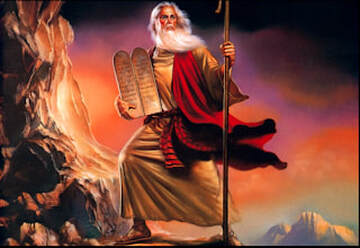
- Moses went up the mountain to God so as to be instructed on how to lead the Israelites on their last part of the journey to the Promised Land.
- Moses overstayed up the mountain until some Israelites became impatient and restless.
- The multitude started murmuring against the God of Moses/ Yahweh and desired to go back to Egypt.
- They asked Aaron to make for them a physical god to worship.
- Aaron made an idol god in form of a calf. He used the ornaments they had brought from Egypt.
- The idol represented power and strength.
- Their worship was accompanied by singing, dancing, drinking, eating and indulged in revelry/sex around the calf.
- This was blasphemy before God/idolatry.
- Meanwhile God told Moses to go down for the people had sinned and rejected him.
- - Moses was annoyed and dropped the tablets on which the laws were written they broke into pieces.
- He ground the bull-calf and mixed with water and forced the people to drink.
- Moses called the faithful followers of Yahweh. Only the Levites came forward.
- Moses ordered the faithful people to kill the sinners.
- Moses returned to God and asked for forgiveness on behalf of the people.
- God promised to rub the names of the sinners from the book of heaven.
- God told Moses to continue leading the people.
Reasons why the Israelites broke the covenant while at Mt. Sinai
- Moses their leader delayed to come down from the mountain/imagined he had died.
- Aaron who had been left in charge of the people was a weak leader.
- The people demanded for a god / gods they could see / feel.
- The people were still influenced by the Egyptian way of worship / idolatry.
- Moses teaching I influence had faded / vanished from the people’s minds/ forgotten.
- The people had lost faith in their invisible God.
TRADITIONAL AFRICAN CONCEPT OF EVIL
- It is an offense against another person of the community or it is an offense against God, the spirits or ancestors.
- African communities are aware of the existence of evil in the society and the existence of evil in the society and they try to avoid it.
- African communities believed that God is good and did not create evil.
- There are many ideas concerning the origin and nature of evil.
The following are some of the beliefs about the origin of evil;
- Many African communities believed they could be malicious/malevolent spirits.
- Such spirits could be having a grudge against the living who probably failed to pour libation and to give offering.
- Evil people e.g. wizards, witches, sorcerers who are able to tap mystical powers and use if for evil. They therefore cause harm to the living
- Breaking of taboos, this result in becoming ritually unclean.
- Curses by parents and other older relatives e.g. uncles, grandparents, aunts etc.
- This occurs because when one offends them e.g. through insults, neglect and disobedience.
- Breaking of oaths/ a solemn promise.
- Oaths were usually made in order to seal an argument or to defend one against malicious accusations.
- Bad omen.
- Certain acts, words or things which are believed to have the effect of causing harm.
TRADITIONAL AFRICAN VIEW OF CREATION
The African creation stories are different from one community to another and myths are used to explain them.
A myth can be defined as a story that explains the origin of something, some customs and practices. It has a deeper meaning and even tries to explain the origin of a community.
Common ideas in Traditional African views of creation
- African communities acknowledge God as the creator of the universe.
- God is the sustainer of his creation for example, He provides for human beings.
- God is the only creator and created the earth independently.
- God’s work of creation is continuous and he does so through humankind e.g. through pro-creation.
- It is God who set up human customs and traditions which humankind should follow.
- Man was created with a mate. The woman is supposed to be his companion and helper.
- The creation of man was after the rest of the creation.
- To sustain him, plants and animals were created for food.
similarities-between-the-traditional-african-myths-and-the-biblical-accounts-of-creation.html
THE MEANING OF BIBLICAL ACCOUNTS OF CREATION
- God worked as a spirit e.g. in the beginning the spirit of God was hovering over the waters.
- God created the universe all alone. He is the sole creator.
- He created by word of mouth and out of nothing and substance.
- He created human beings in his own image and likeness.
- God put man in charge of the creation and man is to take care of it.(Gen 1:26, 28)
- After each work of creation, God emphasizes on the goodness of creation and always ends with “And God saw that it was good”.
- God gave people/human beings understanding, namely; of good and evil and man had to make a choice.
- The dignity of a woman is emphasized. She is portrayed as a companion to man and both are equal before God and are also complementary.
- God is depicted as a God of order.
- He created the earth with a plan e.g. He created light first to be used by human beings.
- The seventh day is set aside by God as a holiday or sacred for rest and worship.
Comparison between the two accounts of creation:
Similarities
- In both, God is portrayed as the only sole creator.
- In both, man is portrayed as a special creature; Man was created in God’s image and likeness and there was nothing else created in that way.
- Both outline the creation of the living and non-living things i.e. heaven, man, plants and animals etc.
- In both, Man shares in life with God. God breathed life into man’s nostrils and created him in his own image.
- In both cases, the earth was empty, formless.
- In both cases, Man is given special privileges and responsibilities and is to multiply and fill the earth.
- In both stories, God existed before creation.
- In both mankind is created into full sexuality (male and female).
Differences
- The creation of the firmament, the sun, the moon, stars, fish and creeping animals is only mentioned in the first story.
- The planting of the Garden of Eden and the making of the river is only mentioned in the second story.
- The creation in the first account is out of nothing (word) but out of substance in the second account e.g. the creation of man.
- In the first account, creation took place for six days and God rested on the seventh day (Sabbath) while there is no mention of duration and the Sabbath day in the second story.
- The first account is God-centered i.e. God is pictured as the one doing the work of creation while the second account is man-centered i.e. man is created first and the rest of the creatures are then made to serve the needs of man.
- Marriage is meant for procreation in the first account (Genesis 1:38) while it is meant for companionship in the second story. (Genesis 2:23 – 24)
- In the first account man was created last but in the second account man is created first.
- In the second story there is mention of the forbidden tree of knowledge of good and evil which is not mentioned in the first account.
- In the first account God affirms the goodness of all that he created but this is lacking in the second account.
- The privileges and responsibilities given to man are more emphasized in the first account. (Genesis 1:26 – 30)
- In the second account human beings are forbidden to eat the fruits of the tree in the middle but in the second, they can eat all plants yielding seeds and none is forbidden.
- the-meaning-of-biblical-accounts-of-creation.html
- relationship-between-human-beings-and-the-environment-from-the-creation-stories7597492.html
- traditional-african-view-of-creation.html
- responsibilities-given-to-human-beings-by-god-from-biblical-creation-stories-in-genesis-1-and-2.html
- identify-the-responsibilities-given-to-human-beings-by-god-in-biblical-creation-stories.html
Author
Atika School Team
Archives
October 2023
March 2023
November 2022
April 2022
March 2022
February 2022
October 2021
June 2021
April 2021
February 2021
January 2021
December 2020
November 2020
September 2020
August 2020
July 2020
June 2020
March 2020
February 2020
January 2020
October 2019
September 2019
August 2019
July 2019
June 2019
May 2019
April 2019
October 2018
June 2018
April 2018
May 2017
November 2016
October 2016
September 2016
Categories
All
ABRAHAM
Baptism
Burial Rules
Ceremonies
Christian Approaches To Human Sexuality Marriage
Christian Approaches To Law Order Justice
CHRISTIAN APPROACHES TO LEISURE
Christian Approaches To Selected Issues Related To Modern Science
Christian Approaches To Wealth
Christian Approaches To Work
Christian Lives Today
Christians Approaches To Wealth
Christian Teaching On Leisure
Christian Teaching On Work
Church Leaders
COVENANTS
CREATION AND THE FALL OF MAN
C.R.E FORM 2 NOTES
CRE NOTES FORM 2
CRE PAPER 1
C.R.E QUESTIONS ON ENVIRONMENT
C.R.E REVIEW QUESTIONS
CRE REVIEW QUESTIONS 1
CRE REVIEW QUESTIONS 1 - Page 2
CRE REVIEW QUESTIONS 1 - Page 3
CRE REVIEW QUESTIONS 1 - Page 4
CRE REVIEW QUESTIONS 1 - Page 5
Death
DEATH AND RESURRECTION
Disciples
Exodus
Faith And God’s Promises: Abraham
FORM 1
Form 2
FORM 3
FORM 4
Fornication
Gifts Of The Holy Spirit
GOD’S PLAN OF SALVATION OF MANKIND
Idolatry
Initiation
Israelites
Jeremiah
Jesus
Jesus Christ
JESUS’ PASSION
John The Baptist
KCSE 2012
King David
KING SAUL
King Solomon
LEADERSHIP IN ISRAEL: DAVID AND SOLOMON
Lessons Christians Learn
Love
LOYALTY TO GOD: ELIJAH
LOYALTY TO GOD – PROPHET ELIJAH
Luke 5:1-11
MARRIAGE
Marriage And Family
MEANING OF CHRISTIAN RELIGIOUS EDUCATION
Nature Of God
Nehemiah
Old Testament Prophesies About The Messiah
Order And Justice
Parables
Pentecost
Prophecies About The Messiah
Prophet Amos
Prophet Nathan
Qualities Of Prophet Elijah That A Christian Leader Should Posses
Reasons As To Why Man Is Considered The Most Special Creation Of God
RESPONSIBILITY OF THE LIVING TOWARDS GOD
RITES OF PASSAGE
Selected Aspects In African Religious Heritage: African Concept Of God
Selected Old Testament Prophets And Their Teachings
Similarities Between The Traditional African Myths And The Biblical Accounts Of Creation
SIN
SINAI COVENANT: MOSES
Spirits
Spirits And Ancestors
Steps In The Formation/ Sealing Of The Covenant
Summary Of The Ways In Which God Took Care Of The Israelites During The Exodus
Teachings From The Biblical Creation Accounts
Technology And Environment
Temple
Temptations
TEN PLAGUES
THE BIBLE
The Call Of Abraham (Gen. 12:1-9)
The Galilean Ministry
The Infancy And Early Life Of Jesus
THE JERUSALEM MINISTRY
The Journey To Jerusalem
THE KINGDOM OF GOD
THE PASSOVER
THE TEN COMMANDMENTS
THE UNITY OF BELIEVERS
Thics
Traditional African Society
Ural-values
Ural-values
Wealth And Poverty
Wilderness
|
Primary Resources
College Resources
|
Secondary Resources
|
Contact Us
Manyam Franchise
P.O Box 1189 - 40200 Kisii Tel: 0728 450 424 Tel: 0738 619 279 E-mail - sales@manyamfranchise.com |

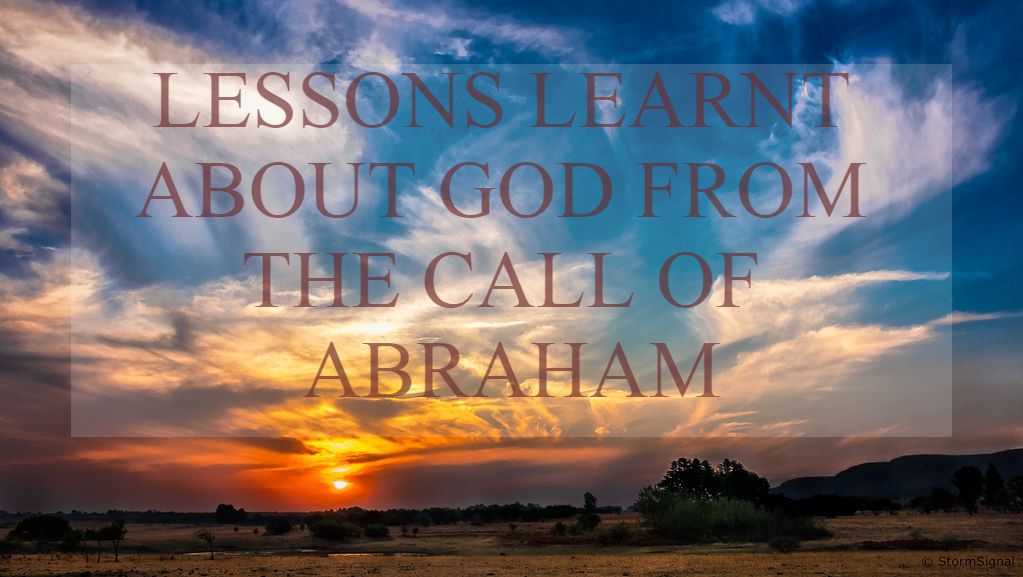
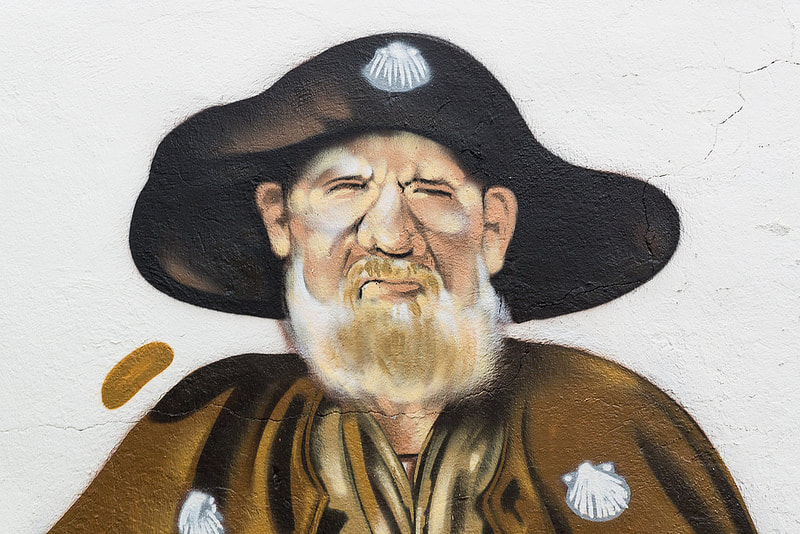
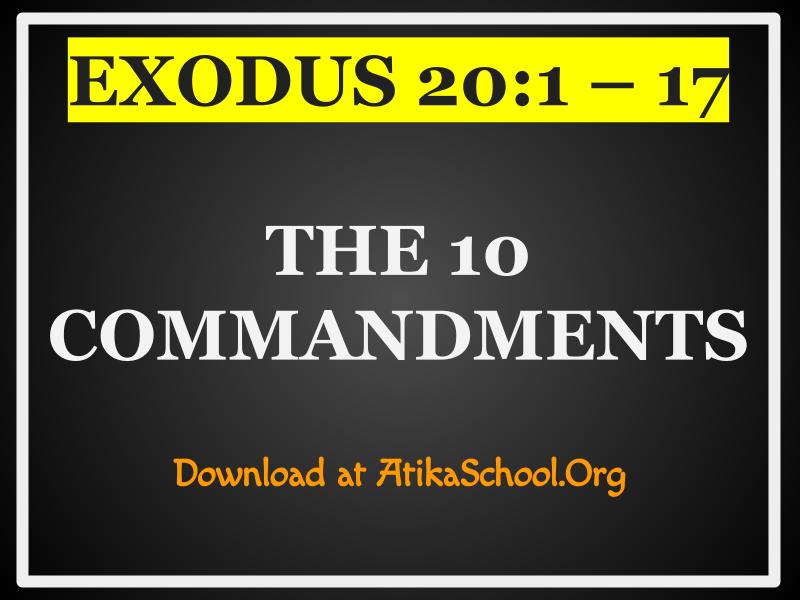
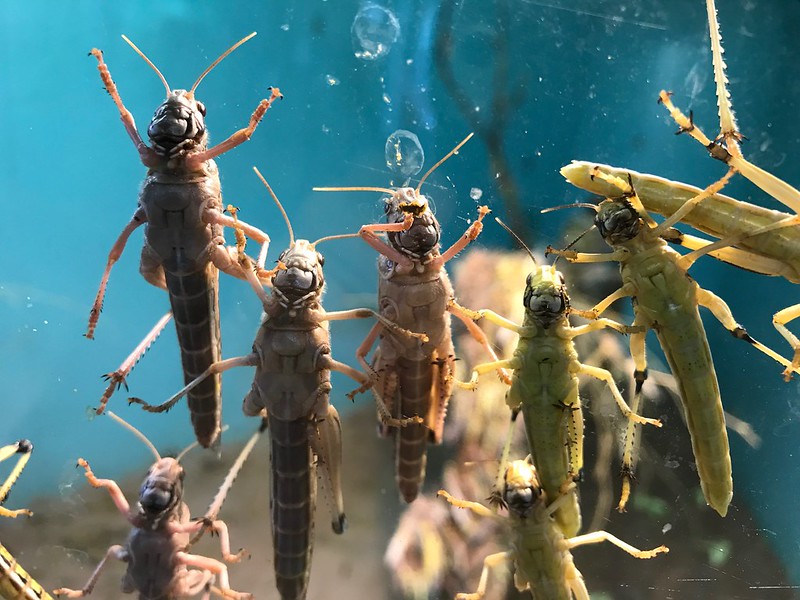
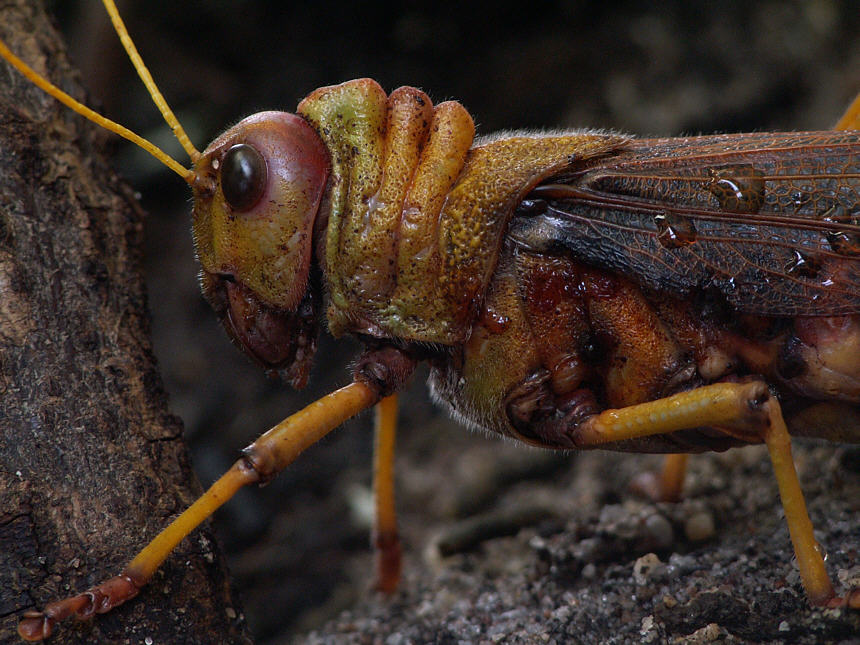
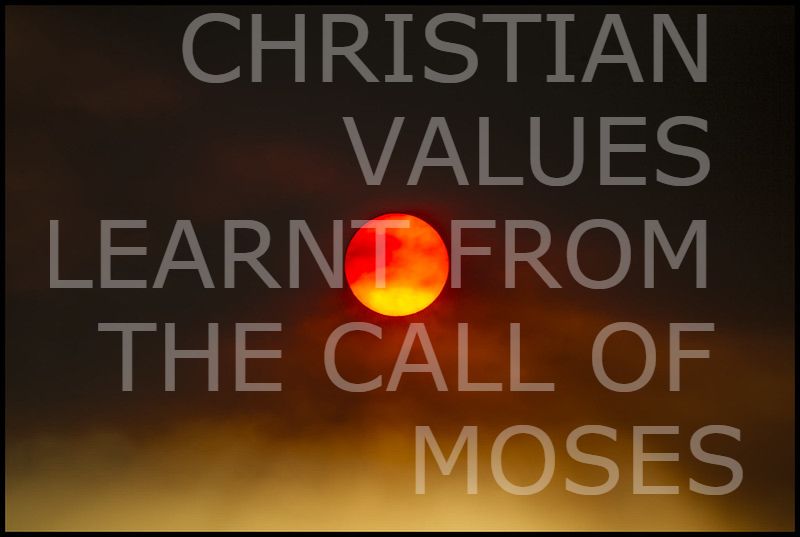
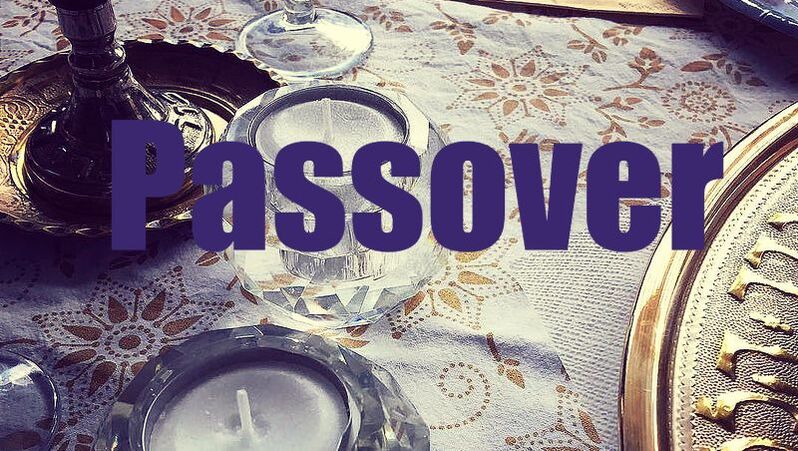
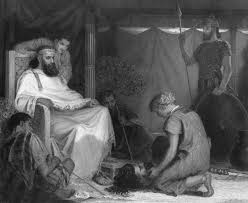
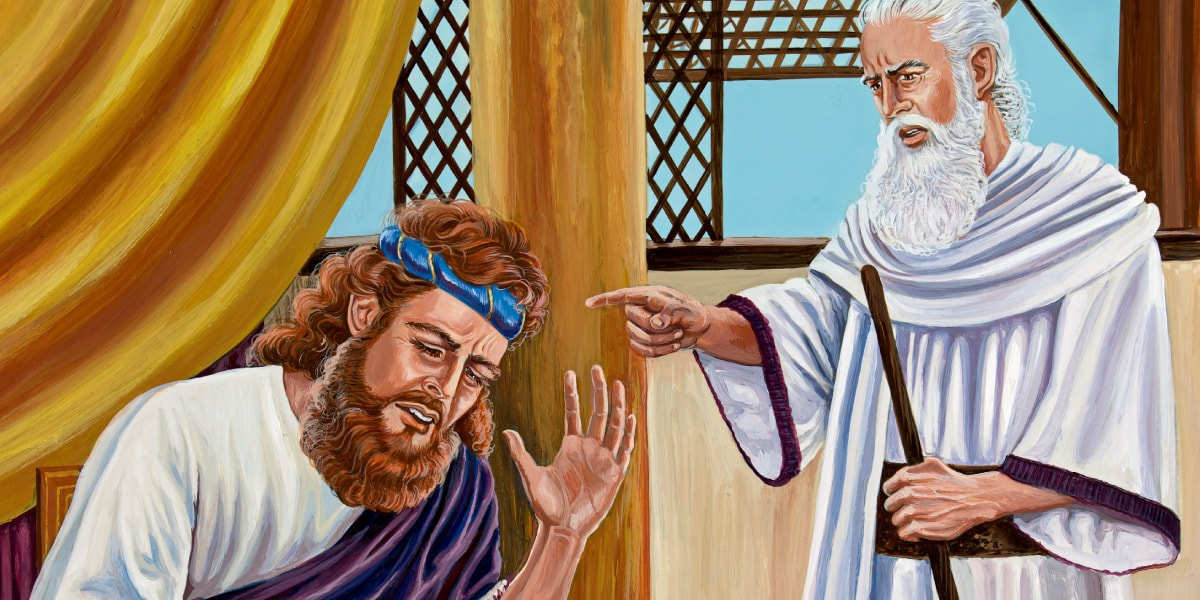
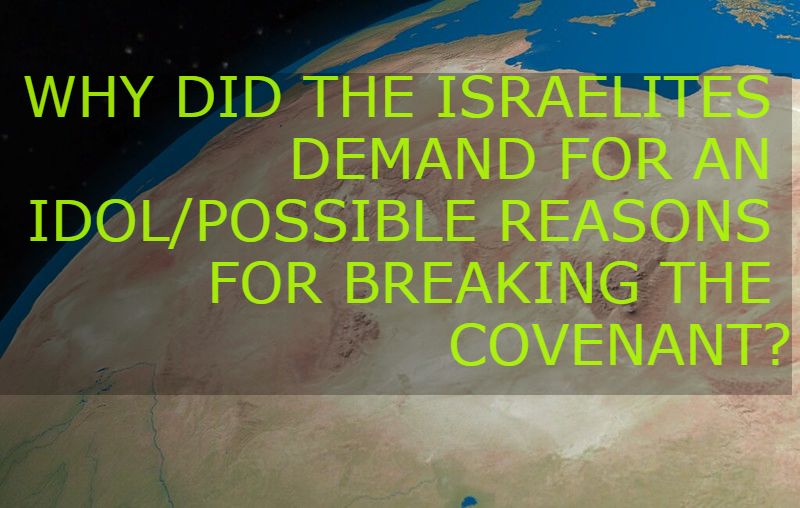
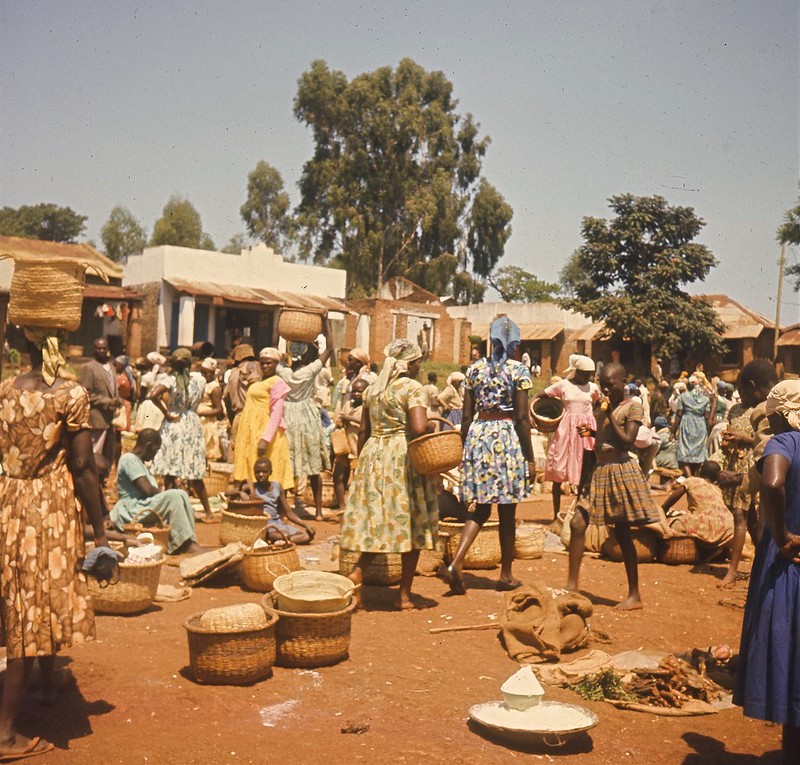
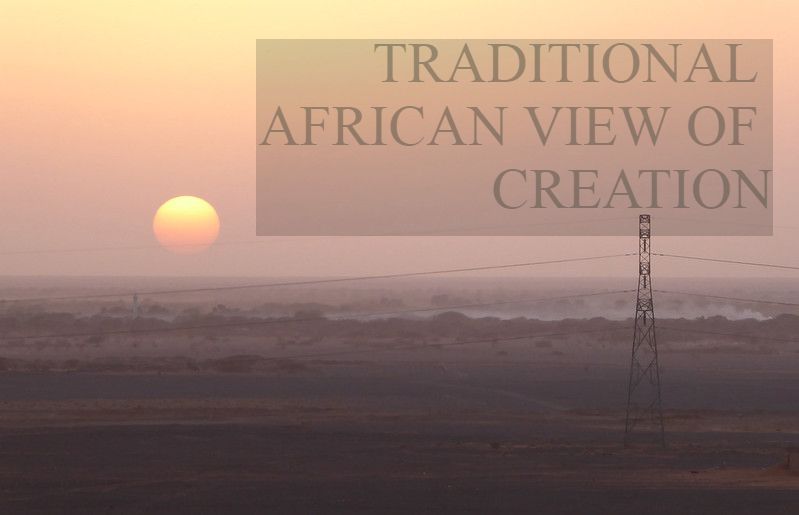
 RSS Feed
RSS Feed

